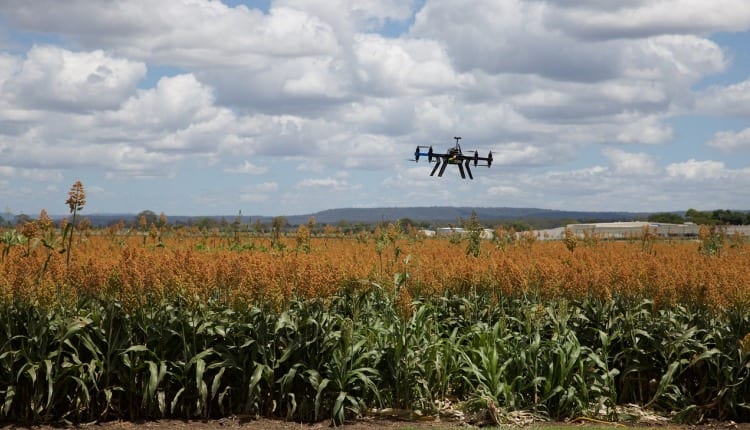IIT Kanpur incubated startup develops IoT and AI products for sustainable farming
Oxy Neuron India is a startup incubated at SIIC (Startup Incubation and Innovation Centre) of IIT Kanpur and has successfully innovated oxygen, hydrogen and nitrogen based original agricultural and medical products in collaboration with Exalta India. Ashutosh Verma, Founder of Oxy Neuron India speaks about their IoT and AI solutions for the agricultural sector, and more
What are your IoT and AI solutions for the farming community in India?

Oxy Neuron’s AI and IoT tools include giving them various training and guidance in low-cost organic farming, which is the best kind of practice they can learn for a sustainable future. For example, Water Chowkidar is one of our major IoT products that will help farmers control the exact flow, amount and timings of water irrigation by checking factors like soil humidity making it hassle-free even from remote locations.
How will organic farmers benefit through your tech tools?
We have a whole range of IoT, AI, oxygen and nitrogen based products for agriculture. Our training tools help farmers incorporate organic farming in their practice by guiding them through every step of the way, such as which crop to grow at what time, updates on water levels, remote monitoring, and more. Indian market’s urea-based nitrogen fertilizers have long been used for productivity but are costly and have other adverse effects after leaking into the environment. It is estimated that nitrogen waste accounts for a third of agriculture’s greenhouse emissions which means that nitrogen is something to be more smartly managed. Our Nitrogenated Watering Device is ready to replace the market’s urea-based fertilisers in a controlled, more organic and cost-efficient way. Our Solar Portable Cold Storage can be used for regular storage to transport their fresh fruits and vegetables with zero electricity need. Our other solar products like Solar Water Pump, Solar Magic Generator Kit and Heat Pumps also aid in many varieties of organic farming.
What kind of tech training are you looking at providing to farmers? In which states/regions?
We are primarily focusing on buyer friendly organic farming related training to the farmers. We are looking at our AI and IoT tools giving real-time guidance to farmers with various farming situations. This will allow farmers to be more productive and adequately leverage the existing and latest scientific technology into their long-term farming disciplines. This method will help fill a technological and social gap that exists in our country. We are initially starting with many regions in Uttar Pradesh for this technology.
What are your plans for the future in terms of new technologies and strategic expansion?
We plan to make agriculture for farmers more clean energy-based with our nitrogen, oxygen, hydrogen, IoT and AI-based products, making agri-tech’s paradigm more inclusive for them and younger generations. We are soon to launch a platform for buyers and sellers that is farmers directly to customers. One of our major products in development is our Crop Differentiation machine to differentiate between crop varieties based on their size and quality, which can help get farmers better prices from the ongoing practice of loading everything together. We are also developing fertilisation drones, seed reaping machines, soil testing equipment, seed quality testing equipment, etc.
Your perception of how new-age technologies will reinvent the agricultural sector in India in times to come?
Big companies and startups are likely to make many investments in R&D and innovations to survive competition as the population is only growing with an increase in incomes, globalisation and health consciousness. The rise in consumer awareness will push companies to reinvent themselves more organically and efficiently than before. Big data will play a significant role in farming for future. The compilation of data and its further processing over time will make it worthwhile for better decision-making and problem-solving every step of the way by both farmers and companies. Thus, benefitting the entire market globally.
Any other significant factor you wish to highlight?
New age technology can help agriculture further through better crop production. It can help lower water, fertiliser, and pesticides, helping keep the food prices down. Reduce the impact on the surrounding environment. Fewer chemicals getting drained into rivers and groundwater. Increasing worker safety and productivity levels.

